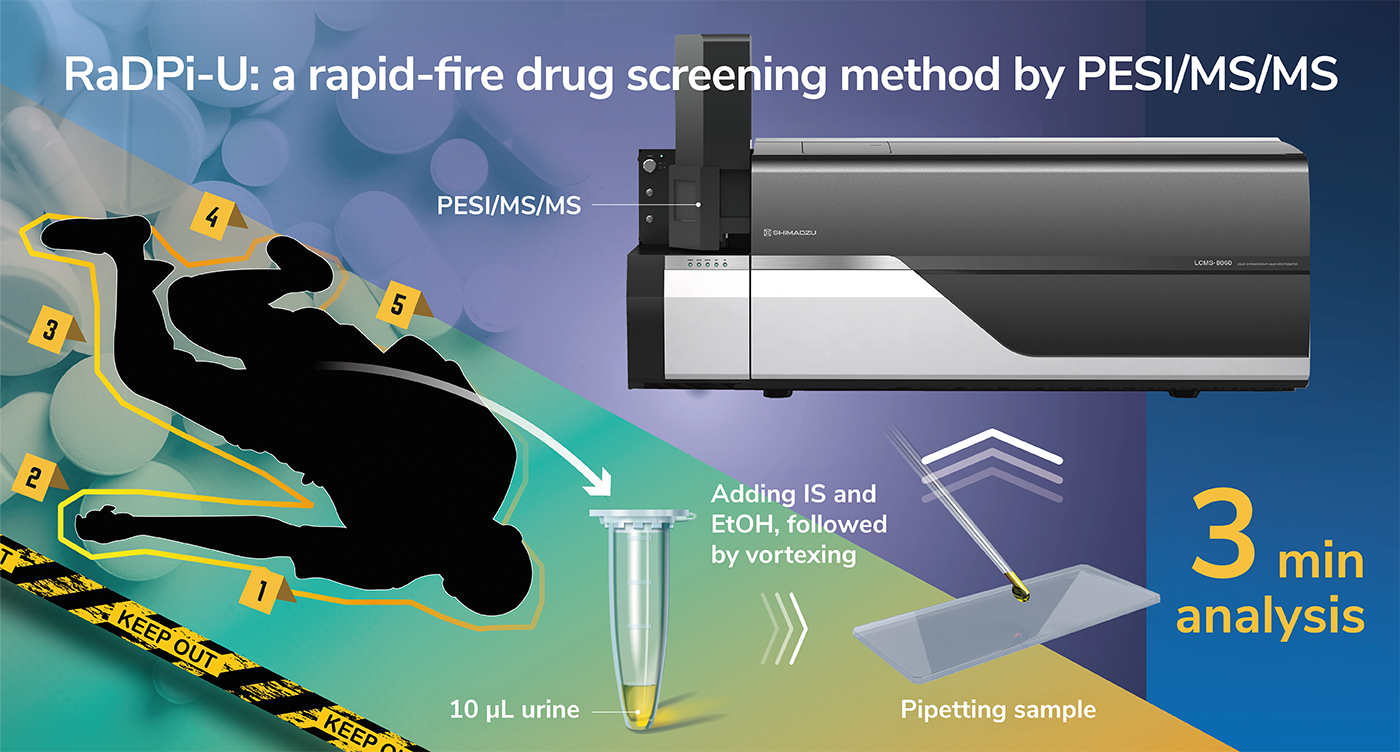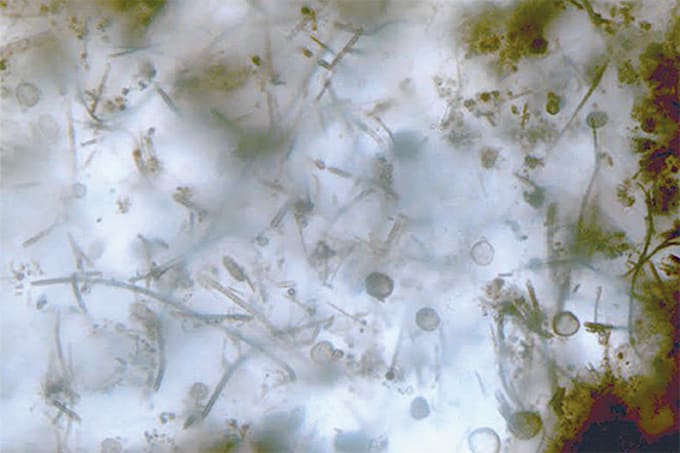A team of researchers in Japan has developed a rapid drug screening method for urine analysis – RaDPi-U – which can detect 40 forensically significant drugs in a matter of minutes (1).
We spoke with corresponding author Kei Zaitsu from Kindai University, Japan, to learn more about this exciting research – and what this technology could mean for the future of forensic toxicology.

What inspired this research?
There are numerous practical methods available for drug screening. Among these, the most well-known and user-friendly is the immunological drug screening test. Despite providing rapid results, it is limited to detecting very specific drug groups (rather than individual drugs) and often produces false positives.
Mass spectrometry (MS) is well known and incredibly valuable for drug analysis, but it typically demands professional expertise and entails lengthy sample pretreatment before analysis. Therefore, our study aimed to conceptualize a method whereby even non-professionals can conduct drug screening analysis using MS techniques.
How does RaDPi-U work?
Our RaDPi-U method is remarkably straightforward, consisting of three simple steps. Firstly, 10 microliters of urine are mixed with an internal standard in ethanol for approximately one minute. Next, the solution is pipetted onto a sample plate and inserted into the probe electrospray ionization and tandem mass spectrometry (PESI-MS/MS) instrument for analysis (with a runtime of 1.5 minutes). The whole process takes less than three minutes and results are automatically reported through integrated software.
This technology offers rapid, user-friendly analysis without the need for chromatographic separation. Instead, it uses MS to enhance selectivity in drug detection. The tandem MS conditions for detecting each drug is meticulously optimized using blank human urine samples to minimize the risk of false positives. Optimizing the analytical conditions certainly posed challenges, but we conducted extensive preliminary research for over five years to put confidence in our work.
Could RaDPi-U be used in other areas of forensic toxicology or clinical research?
If electric power is available, RaDPi-U can be used for on-site drug testing across a wide range of businesses. Additionally, incorporating miniature mass spectrometers will grant further portability to RaDPi-U and work as a solution to anyone across the globe. We’re also planning to expand RaDPi-U to include blood analysis – potentially naming it RaDPi-B – which would be instrumental in therapeutic drug monitoring.
Where do you see the future of forensic toxicology?
Rapid and reliable analytical techniques significantly assist forensic toxicologists in circumventing time-consuming processes, which makes sustainable improvement imperative for the future of the field. Like Elon Musk and Steve Jobs, it is essential that we embrace the challenge of new technologies rather than fixating on existing ones. We are committed to continuously improving analytical techniques to make them more efficient and effective for analysts.
References
- K Hisatsune et al., Anal Bioanal Chem, 416 (2024). PMID: 38523158.




